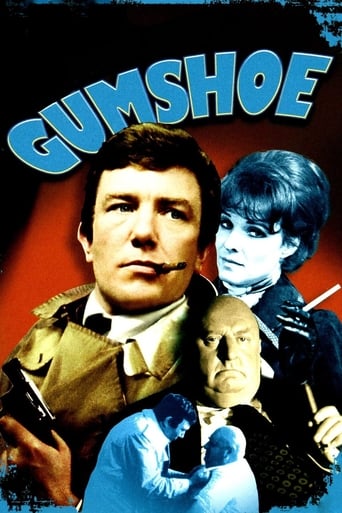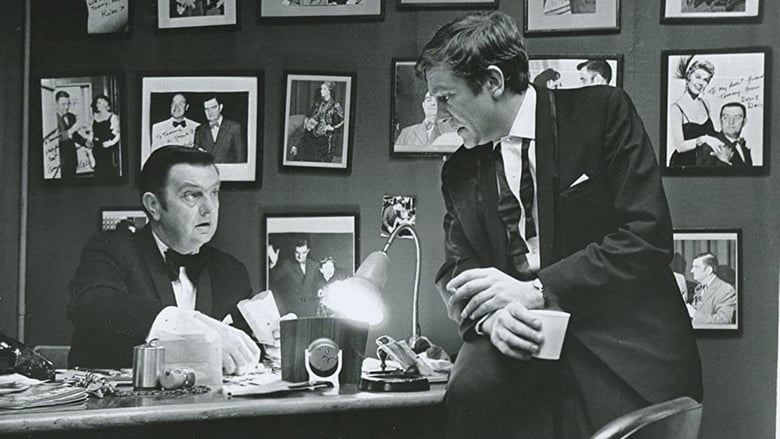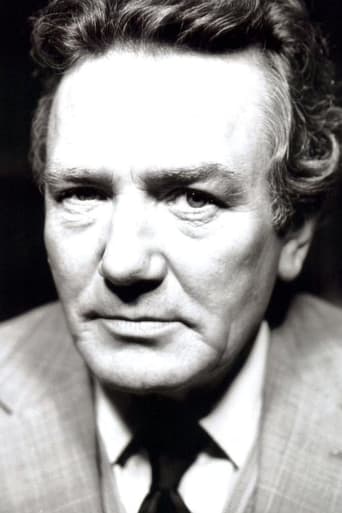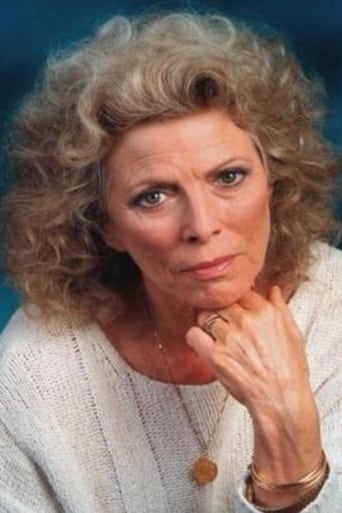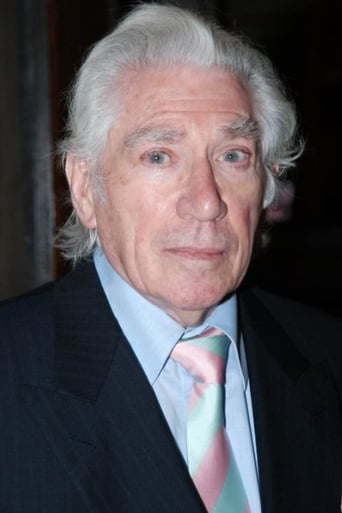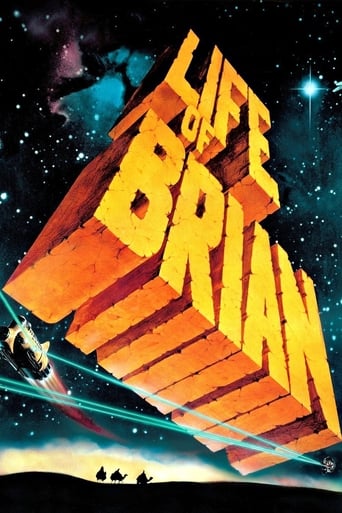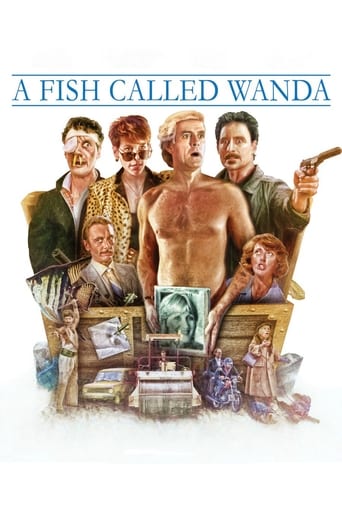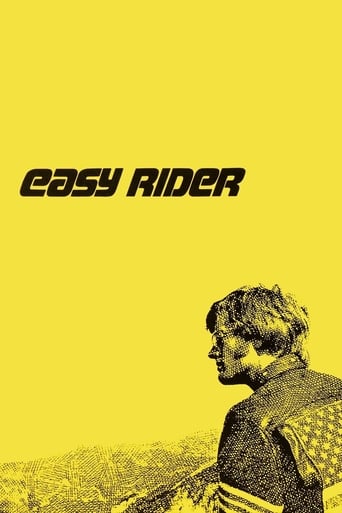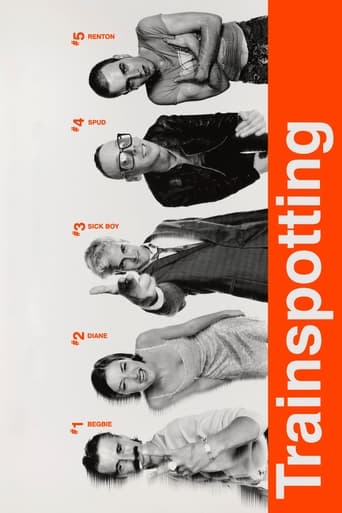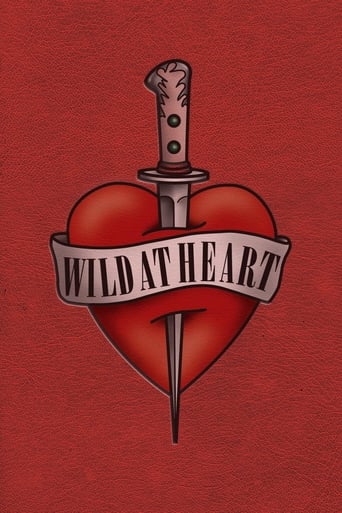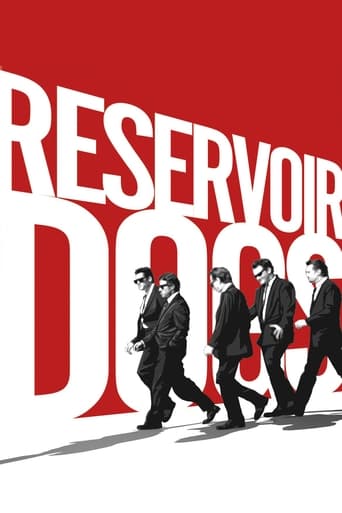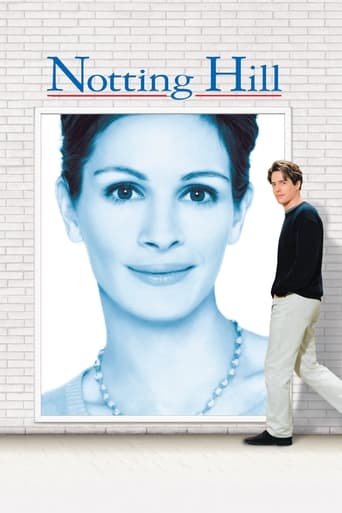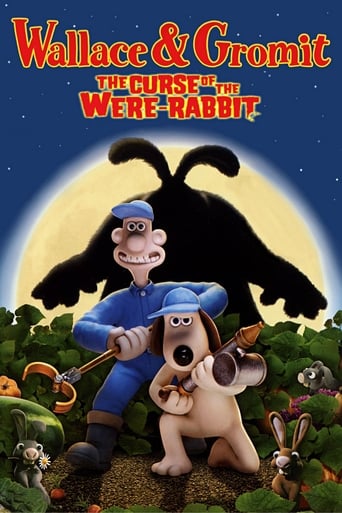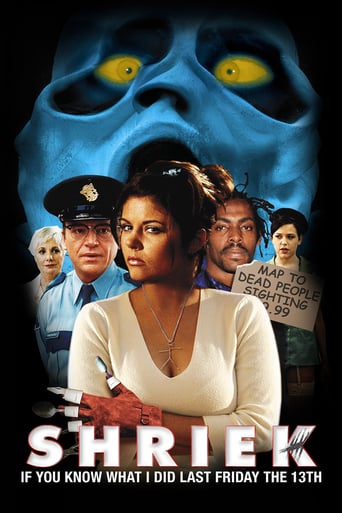Gumshoe (1971)
A would be private eye gets mixed up in a smuggling case.
Watch Trailer
Cast


Similar titles
Reviews
Even though he co-wrote the screenplay for "The Big Sleep," William Faulkner reportedly admitted that he never understood the plot. It would have been fun to turn him loose on "Gumshoe" which by comparison makes "The Big Sleep" seem like an exercise in clarity. Albert Finney stars as a bingo caller and aspiring comic who advertises himself as a private eye. Lured to a hotel room, he's handed a parcel containing a thousand pounds, a gun and some photos. Why? He has no idea and neither does the audience. But it does lead to an encounter with a self-styled hit man and a dead body in his bedroom. Why? Again, no one has a clue. Eventually, the mystery centers on a drug-addicted fat man, Finney's obnoxious brother played by Frank Finlayson, shipments of arms to Africa and a weird book store which is managed either by a nymphet or a thug. Throughout the confusion, much to his credit, Finney acts as if it all makes sense. In fact, his performance is thoroughly entertaining. Which "Gumshoe" would be if it was only comprehensible.
What a joy to watch this oddity from the great British director Stephen Frears' back catalogue on telly here recently. But because of certain parts in it, I can sort of see why it has largely stayed in 1971, a cult rather than a mainstream success. The story is a funny and modern take on a classic film noir. Being a Stephen Frears film, it's overflowing with observant details that make up a free-flowing, vivid picture of life in 1971 in the mind of a young man, Eddie Ginley (a young and handsome Albert Finney) who works nights as a bingo caller in a nightclub but dreams of a future as a stand-up comic. His overachieving brother has "run off with his best girl"; he's a dreamer, obsessed with crime fiction, and wants to be a detective, and he's about to get what he wants in spades. (Intermittent spoilers from here on in.)It's hard to tell now (or have I lost my sense of irony?) whether Eddie's cheesy stand-up routine and his casual racism are ironic character elements or for real. The 70s really were the dark ages, so nothing would surprise me now. I don't think I'm being oversensitive: his comments to the sole black character, Danny Azinge, are horribly racist and unsubtle and unfunny. Anyone who watched "Bless this House" or "The Black & White Minstrel Show" in the 70s, and any first and second generation Black Britons will tell you that it's all too likely to have been for real. Even Danny's terrific punch to Eddie's solar plexus serves him right doesn't wholly compensate for the nasty taste those lines left in my mouth.But I love, love, love the witty and cheeky takes on 40s noir and Chandleresque dialogue and story structure. The sexual tension between Eddie and his ex, now sister in law, Ellen (a stately Billie Whitelaw), crackles along. The Cain & Abel backstory is nicely played out. Eddie's brother William is the perfect foil: enough of a "schmuck" to make Eddie appealing, but sensible enough to be plausible second choice for Ellen.Some parts of the film now work best as social documentary; the 1971 era fire engine, the now sadly extinct open-backed red buses; Ellen's 'snazzy' car (sounds like a super-fast tractor); the comment on Liverpool "it's not a gun town, is it?". I think Frears understood the social significance of filming realistic scenes in a dismal unemployment office, and in the working men's club; you see it in the love he shows the building, the head honcho with his fake celebrity portraits; the reactions of the crowd. The story's pretty engrossing, and the way it's played out has all the hallmarks of a good Frears film, but it's the central love story that I find appealing. You look at the two men in her life and you understand why Ellen made the decision she did. Charming and endearing as Eddie is, and as she certainly still finds him, she got tired of waiting for him to stop being a dreamy low-rent clown. Their sad, simple kisses reflect that. He 'grows up' by the time the film reaches its conclusion, but by then it's all far too late. His life's romance is dead, but his life begins. Lovely stuff.
I didn't think much of this movie when I first saw it some years back. However it has certainly grown on me. As other comments say it is something of a CULT movie. Good cast of actors (national & local) An interesting facet for me is the locations in my hometown of Liverpool. The docks (looks like South end docks to me), Lime St station, Faulkner Square & Bedford Street (both in Toxteth) It shows how bleak the parts of Liverpool were back in the late sixties & early seventies. They bear no comparison to the areas today, which are fairly vibrant. I am sure the Night Club in this film was the Castaways club in Halebank Widnes, by the now defunct Ditton Junction station.
An excellent cast does its utmost, but the results can be characterized as uneven at best. This movie had many clever ideas, and should have saved half of them for another film. It also alternates uncomfortable between laughing at its characters and laughing with them. Still, there are several brilliant scenes that will reward those with the tenacity to stick with it, especially in the film's last third. My rating -- 6/10.

